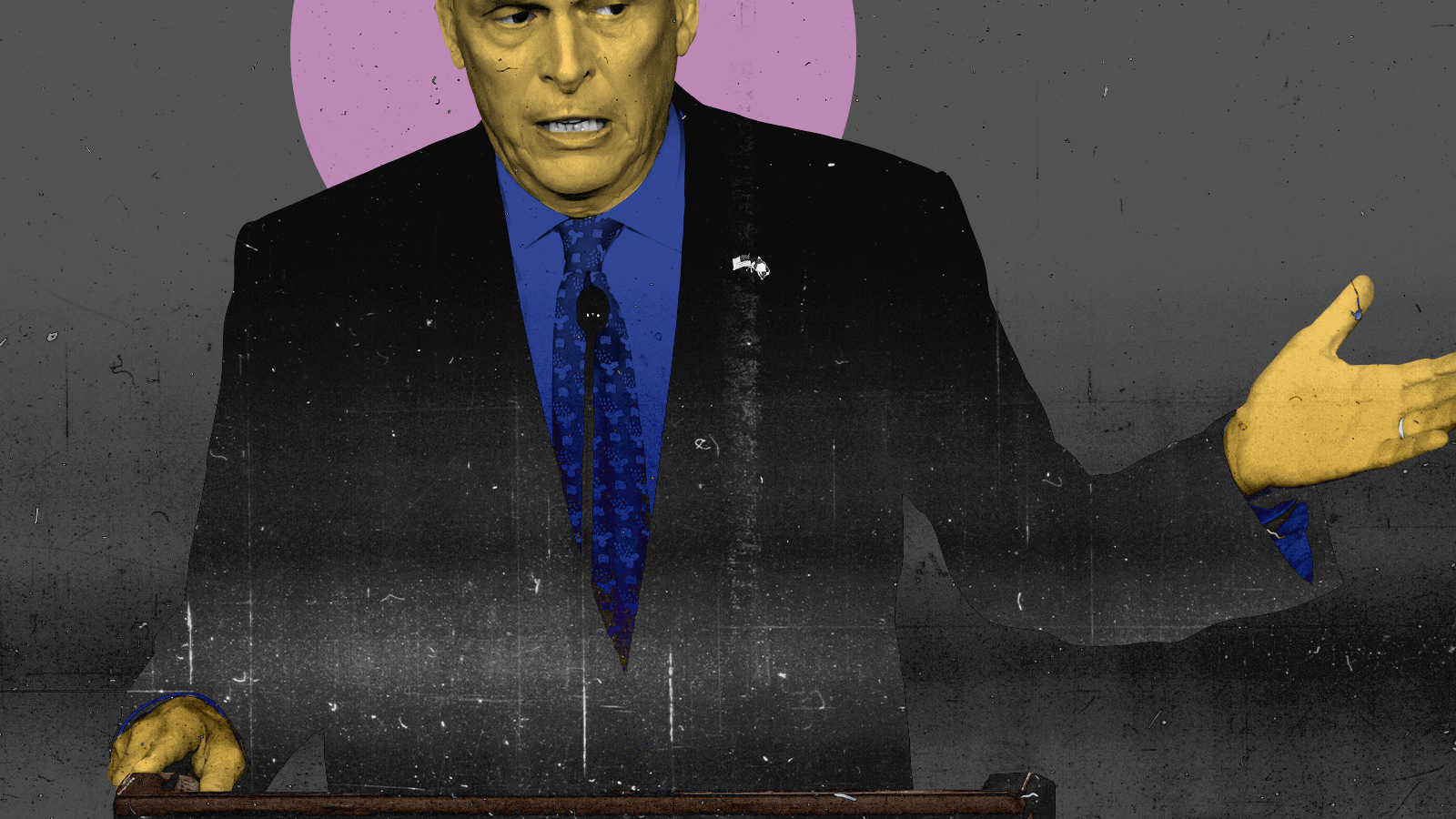What Democrats really think about parents


A free daily email with the biggest news stories of the day – and the best features from TheWeek.com
You are now subscribed
Your newsletter sign-up was successful
Journalist Michael Kinsley famously defined a gaffe as when a politician accidentally tells the truth. By that standard, Democrat Terry McAullife committed a gaffe in the Virginia gubernatorial debate on Tuesday night.
Challenged by Republican nominee Glenn Youngkin about his veto of a bill giving parents the right to demand alternatives to sexually explicit course materials, McAuliffe said, "I'm not going to let parents come into schools, take books out, and make their own decisions ... I don't think parents should be telling schools what they should teach."
In its limited context, the remark was a defensible claim about the boundaries of curriculum authority. But it got into gaffe territory in its accidental revelation of what the Democratic Party increasingly thinks of parents. In this view, challenges to decisions made by credentialed experts aren't an essential feature of democratic accountability. They're a kind of lèse majesté, a commoner's insult to rightful power.
The Week
Escape your echo chamber. Get the facts behind the news, plus analysis from multiple perspectives.

Sign up for The Week's Free Newsletters
From our morning news briefing to a weekly Good News Newsletter, get the best of The Week delivered directly to your inbox.
From our morning news briefing to a weekly Good News Newsletter, get the best of The Week delivered directly to your inbox.
Deference to experts in public health, education, and other domains plays well with core Democrat constituencies, including teachers and other educated civil servants who expect to receive deference rather than to show it. It may not play so well with other voters in Virginia, where COVID-19 regulations and "critical race theory" are controversial. Youngkin's appeals to parental authority will resonate with moderates who may have voted for President Biden but are uncomfortable with Democrats' bureaucratic drift. Of course, it will also energize committed Republican culture warriors, because it supports their belief that Democrats see parent's moral and educational authority over their children as an inherent threat to Democratic goals.
Apart from its electoral implications, McAullife's words reflect a challenge to democracy that unfortunately receives less attention than conspiracy theories about mass election fraud. Expert advice is an important resource for legislative and executive action, but political decisions are supposed to be made by elected officials rather than salaried professionals. Parents are wrong when they insist teachers "work for us," as if they were private tutors. But teachers do work for school boards and are subject to oversight by state legislatures, both which rightfully answer to voters, parents very much included.
Sensing a winning issue, Youngkin has already cut an ad based on the exchange. It may help him tighten a race where polls have found him consistently behind. It's not easy for a Republican to win a statewide race in Virginia, a state that's been transformed by the demographic and economic growth of the D.C. suburbs. McAullife's gaffe will help.
A free daily email with the biggest news stories of the day – and the best features from TheWeek.com
Samuel Goldman is a national correspondent at TheWeek.com. He is also an associate professor of political science at George Washington University, where he is executive director of the John L. Loeb, Jr. Institute for Religious Freedom and director of the Politics & Values Program. He received his Ph.D. from Harvard and was a postdoctoral fellow in Religion, Ethics, & Politics at Princeton University. His books include God's Country: Christian Zionism in America (University of Pennsylvania Press, 2018) and After Nationalism (University of Pennsylvania Press, 2021). In addition to academic research, Goldman's writing has appeared in The New York Times, The Wall Street Journal, and many other publications.
-
 Quentin Deranque: a student’s death energizes the French far right
Quentin Deranque: a student’s death energizes the French far rightIN THE SPOTLIGHT Reactions to the violent killing of an ultra-conservative activist offer a glimpse at the culture wars roiling France ahead of next year’s elections.
-
 Secured vs. unsecured loans: how do they differ and which is better?
Secured vs. unsecured loans: how do they differ and which is better?the explainer They are distinguished by the level of risk and the inclusion of collateral
-
 ‘States that set ambitious climate targets are already feeling the tension’
‘States that set ambitious climate targets are already feeling the tension’Instant Opinion Opinion, comment and editorials of the day
-
 Epstein files topple law CEO, roil UK government
Epstein files topple law CEO, roil UK governmentSpeed Read Peter Mandelson, Britain’s former ambassador to the US, is caught up in the scandal
-
 Iran and US prepare to meet after skirmishes
Iran and US prepare to meet after skirmishesSpeed Read The incident comes amid heightened tensions in the Middle East
-
 Israel retrieves final hostage’s body from Gaza
Israel retrieves final hostage’s body from GazaSpeed Read The 24-year-old police officer was killed during the initial Hamas attack
-
 China’s Xi targets top general in growing purge
China’s Xi targets top general in growing purgeSpeed Read Zhang Youxia is being investigated over ‘grave violations’ of the law
-
 Panama and Canada are negotiating over a crucial copper mine
Panama and Canada are negotiating over a crucial copper mineIn the Spotlight Panama is set to make a final decision on the mine this summer
-
 Why Greenland’s natural resources are nearly impossible to mine
Why Greenland’s natural resources are nearly impossible to mineThe Explainer The country’s natural landscape makes the task extremely difficult
-
 Iran cuts internet as protests escalate
Iran cuts internet as protests escalateSpeed Reada Government buildings across the country have been set on fire
-
 US nabs ‘shadow’ tanker claimed by Russia
US nabs ‘shadow’ tanker claimed by RussiaSpeed Read The ship was one of two vessels seized by the US military
